Performing arts is often an elective subject area for older students. Unlike compulsory subjects such as; science, maths and english, arts subjects are often considered last and as an easy choice. Some schools have even cut the arts from their curriculum due to lack of funding.
Despite this, research shows that studying subjects such as music, drama or dance are highly beneficial for students.
Here are seven reasons why performing arts is important for your son.
Emotional intelligence
The ability to identify and manage your own emotions, and those of others, is a highly valued trait in recruitment. Many workplaces now test job applicants on emotional intelligence to find the best candidate for a job. Performing arts often relies on teamwork where students have to interact with each other to achieve common goals. Developing empathy in these situations is important — failure to do this can result in group projects collapsing, despite everyone’s best intentions. Hurt feelings can create conflicts and uncomfortable dynamics in a group making it less effective as a whole —something everyone in the workplace can relate to!
Confidence and resilience
Performing arts is about, well, performing. This takes self-confidence and assurance. Every performer goes on stage knowing the very real risk of making an embarrassing mistake in front of their audience. Being able to get through these mistakes, which are inevitable, builds a fearless confidence in students. This is an invaluable skill for making public speeches, sales pitches or simply being convincing in a job interview.
Discipline and commitment
Studying a performing arts subject usually means rehearsing or practising on a regular basis. Music students who have regular practice routines develop good discipline and know the value of commitment. They also experience the reward that comes from their commitment. This can come with a great music exam result or the awe and admiration they receive from peers after a performance. Rehearsal reinforces positive work habits that are applicable to all areas of life.
Communication skills
Communication comes in many forms. Written, verbal, non-verbal. Drama can help boys develop great public speaking skills, become more comfortable with their bodies and learn to read other people’s body language. Music often requires good non-verbal communication, especially during group performances. Learning to communicate without the use of words encourages young men to listen closely and read non-verbal queues. Being a good listener is a skill many great leaders have. The ability to improvise – something boys learn in drama games, creates young men who are open-minded and adaptable to evolving situations. In an ever-changing modern world, this is key to your son’s future success.
Identity and belonging
A joint study by the University of Sydney’s Faculty of Education and Social Work and the Australian Council for the Arts has found that students who are involved in the arts ‘have higher engagement in class, self-esteem, and life satisfaction’. Studying a performing arts subject helps to develop a sense of personal identity. It gives boys a chance to belong to a group other than their circle of friends. For boys who are not natural sportsmen, performing arts is a great alternative to develop that sense of camaraderie with others. Many performing arts students will even develop a habit of socialising around the music or drama department at recess and lunch. The departments can become something of a ‘home’ for students.
Creativity and problem solving skills
Steve Jobs. Thomas Edison. Nikola Tesla. Bill Gates. Benjamin Frankin. These are all well-known innovators. Without creative problem solving skills, tomorrow’s inventors and game changers wouldn’t eventuate. Performing arts subjects often exist in an abstract and subjective space and are rarely black and white. This is a great environment to teach creativity and problem solving skills.
Coordination
It’s important for boys to develop fine motor skills and hand-eye coordination. Children are becoming less tactile with the use of technology so, more than ever before, performing arts has an increasingly crucial role to play in this area. Playing musical instruments at a high level requires not only fine motor skills and hand-eye coordination, but strong physical endurance as well.
Performing arts subjects such as music, drama and dance, embrace the natural energy and youthful enthusiasm of boys. When choosing subjects for your son, consider the benefits of a performing arts subject.
Download 2016 Excellence and read about Christopher Cooper, an outstanding musician and our top ATAR high achiever from 2016.






